-
 Bitcoin
Bitcoin $79,031.7280
2.38% -
 Ethereum
Ethereum $1,571.1582
5.24% -
 Tether USDt
Tether USDt $0.9998
0.04% -
 XRP
XRP $1.8889
5.41% -
 BNB
BNB $557.9353
2.56% -
 USDC
USDC $1.0000
0.01% -
 Solana
Solana $109.0020
7.84% -
 Dogecoin
Dogecoin $0.1510
8.03% -
 TRON
TRON $0.2355
4.19% -
 Cardano
Cardano $0.5866
5.65% -
 UNUS SED LEO
UNUS SED LEO $8.9813
0.50% -
 Toncoin
Toncoin $3.1352
4.55% -
 Chainlink
Chainlink $11.5982
7.42% -
 Stellar
Stellar $0.2293
4.50% -
 Avalanche
Avalanche $16.9742
8.35% -
 Sui
Sui $2.0451
10.97% -
 Hedera
Hedera $0.1573
14.80% -
 Shiba Inu
Shiba Inu $0.0...01120
2.21% -
 MANTRA
MANTRA $6.2934
2.88% -
 Polkadot
Polkadot $3.5991
4.23% -
 Bitcoin Cash
Bitcoin Cash $280.1689
7.38% -
 Litecoin
Litecoin $72.0897
7.82% -
 Dai
Dai $1.0003
0.03% -
 Ethena USDe
Ethena USDe $0.9990
0.06% -
 Bitget Token
Bitget Token $4.0695
4.76% -
 Hyperliquid
Hyperliquid $11.9669
17.51% -
 Pi
Pi $0.5730
1.71% -
 Monero
Monero $204.0459
4.53% -
 Uniswap
Uniswap $5.1641
4.36% -
 OKB
OKB $52.0556
6.35%
How to play LBank exchange contracts
LBank exchange contracts provide traders with a diverse range of contract trading options, enabling them to speculate on future cryptocurrency prices and potentially generate profits while limiting risk.
Nov 23, 2024 at 08:52 am
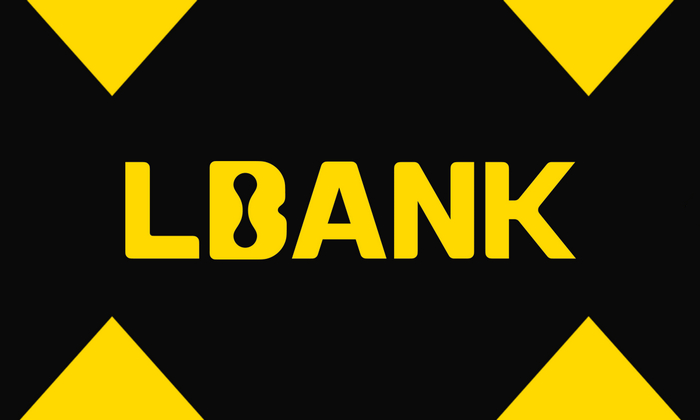
How to Play LBank Exchange Contracts: A Comprehensive Guide
Many seasoned crypto traders are constantly looking for methods to generate profits while limiting risk. One of the most popular methods of accomplishing this is through contract trading. LBank, a renowned cryptocurrency exchange, offers users access to a variety of contract trading options.
In this guide, we will delve into the intricacies of LBank exchange contracts, providing a detailed roadmap for aspiring traders to navigate this complex yet lucrative financial instrument.
Step 1: Understanding Contract Trading
Contract trading involves speculating on the future price of a cryptocurrency. Traders enter into contracts that obligate them to either buy or sell a specific digital asset at a predetermined price on a specified date. This enables them to potentially profit from price fluctuations without actually owning the underlying asset.
Step 2: Choosing a Contract Type
LBank offers two primary contract types: futures contracts and options contracts. Futures contracts are straightforward agreements to buy or sell an asset at a fixed price in the future. Options contracts, on the other hand, grant the holder the right, but not the obligation, to buy or sell an asset at a particular price within a specific time frame.
Step 3: Funding Your Account
To participate in contract trading on LBank, you must first fund your exchange account with sufficient funds. LBank accepts a wide range of cryptocurrencies as well as fiat currencies via wire transfer or credit/debit card.
Step 4: Selecting a Trading Pair
Once your account is funded, you need to choose a trading pair for your contract. LBank offers a diverse selection of trading pairs, including popular cryptocurrencies such as Bitcoin (BTC), Ethereum (ETH), and Litecoin (LTC).
Step 5: Setting Entry and Exit Strategies
Before executing a trade, it is crucial to establish clear entry and exit strategies. Determine the price levels at which you will enter and exit the contract to optimize your profit potential while minimizing risk. Technical analysis and market research can aid in identifying these price points.
Step 6: Executing a Trade
When you are ready to execute a trade, open the LBank contract trading interface and enter the desired trading parameters. Specify the contract type, trading pair, trade size, and leverage (if applicable). Carefully review your order details before confirming the trade.
Step 7: Managing Your Risk
Contract trading carries inherent risk, so it is essential to implement effective risk management strategies. Use stop-loss orders to automatically close your trade if the price moves against you beyond a certain level. Additionally, limit your leverage to a level that aligns with your risk tolerance.
Step 8: Monitoring Your Trade
Once you have executed a trade, monitor its progress closely. Track the price of the underlying asset and make adjustments to your strategy as needed. Be prepared to close your trade early if the market conditions become unfavorable.
Disclaimer:info@kdj.com
The information provided is not trading advice. kdj.com does not assume any responsibility for any investments made based on the information provided in this article. Cryptocurrencies are highly volatile and it is highly recommended that you invest with caution after thorough research!
If you believe that the content used on this website infringes your copyright, please contact us immediately (info@kdj.com) and we will delete it promptly.
- Recovery of Altcoins Follows Bitcoin, Increasing the Total Crypto Market Cap
- 2025-04-08 18:25:12
- Promises of a V-Shaped Recovery Are Intensifying as Speculation Mounts That the Fed Will Pivot to QE
- 2025-04-08 18:25:12
- An apparent multi-million dollar trade gone wrong on the Hyperliquid derivatives exchange saw a JELLYJELLY memecoin trader lose millions
- 2025-04-08 18:20:12
- LF Labs (LF) Captures Investor Attention as It Moves Decisively in the Web3 Market
- 2025-04-08 18:20:12
- As 2024 Winds Down, Dogecoin, Sui, and BlockDAG Promise a Thrilling Start to 2025
- 2025-04-08 18:15:12
- Coldware (COLD) Emerges as a Contender to Dogecoin (DOGE) and Shiba Inu (SHIB)
- 2025-04-08 18:15:12
Related knowledge
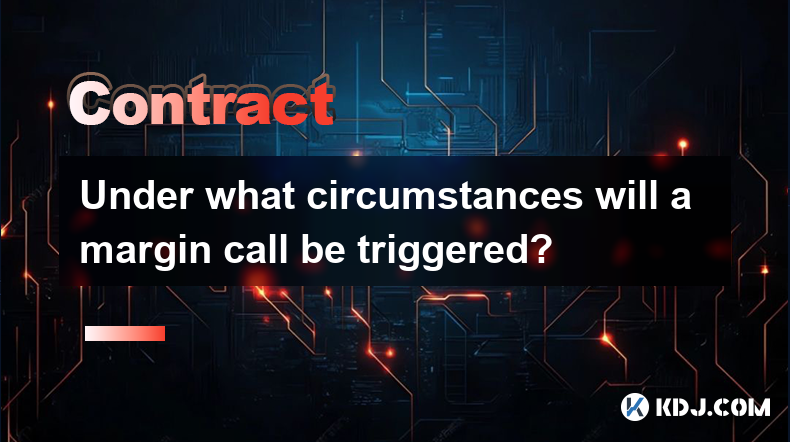
Under what circumstances will a margin call be triggered?
Apr 08,2025 at 02:43pm
Margin trading in the cryptocurrency market allows traders to borrow funds to increase their trading position, potentially amplifying both gains and losses. A critical aspect of margin trading is understanding when a margin call might be triggered, as it can significantly impact your trading strategy and financial health. In this article, we will explor...
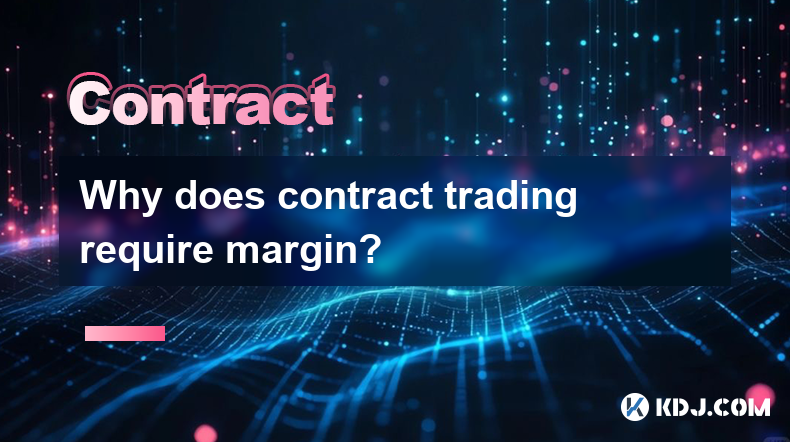
Why does contract trading require margin?
Apr 08,2025 at 02:07pm
Introduction to Contract TradingContract trading in the cryptocurrency market refers to the practice of trading futures or options contracts. These contracts allow traders to speculate on the future price of a cryptocurrency without actually owning the underlying asset. One of the key components of contract trading is the use of margin. Margin is essent...
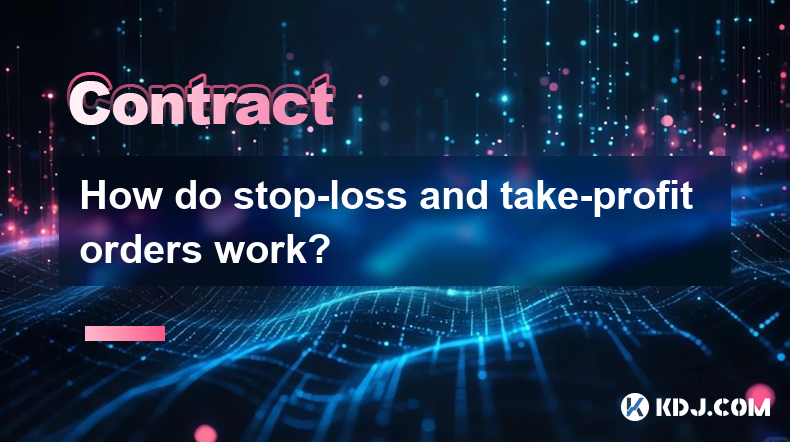
How do stop-loss and take-profit orders work?
Apr 08,2025 at 03:43pm
How do Stop-Loss and Take-Profit Orders Work? In the volatile world of cryptocurrencies, managing risk is crucial for traders. Two essential tools that help in this regard are stop-loss and take-profit orders. These orders are designed to automatically execute trades when certain price levels are reached, helping traders to limit losses and secure profi...
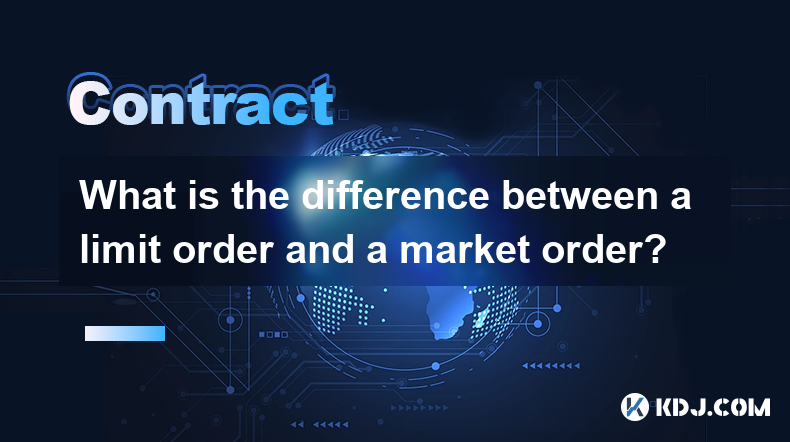
What is the difference between a limit order and a market order?
Apr 08,2025 at 05:14pm
When trading cryptocurrencies, understanding the different types of orders you can place is crucial for effective trading. Two of the most common types of orders are limit orders and market orders. Each serves a different purpose and comes with its own set of advantages and disadvantages. In this article, we will delve into the specifics of both types o...
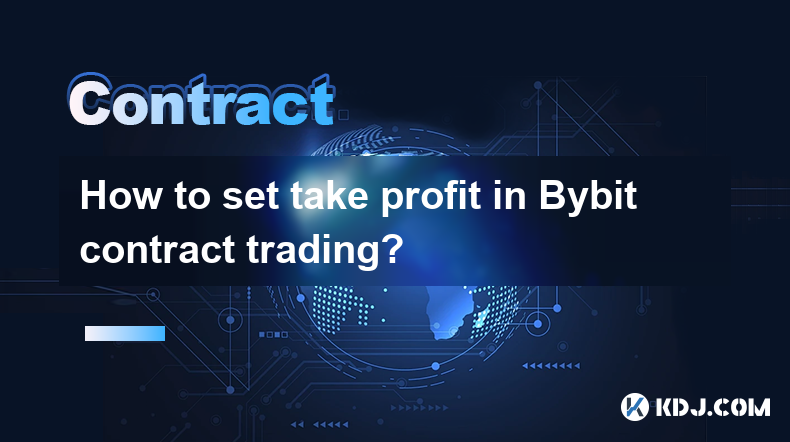
How to set take profit in Bybit contract trading?
Apr 04,2025 at 10:22am
Setting take profit in Bybit contract trading is an essential skill for managing your trades effectively. Bybit, a popular cryptocurrency derivatives exchange, allows traders to set take profit orders to automatically close positions when they reach a certain profit level. This helps in securing gains without the need for constant monitoring. To set a t...
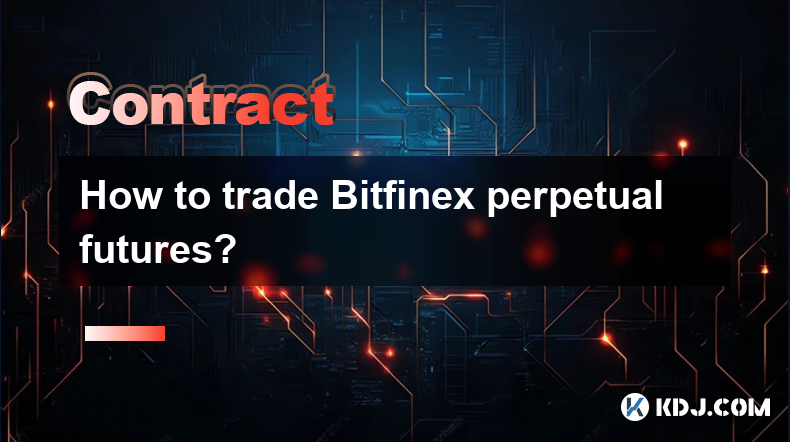
How to trade Bitfinex perpetual futures?
Apr 07,2025 at 12:07am
Trading Bitfinex perpetual futures involves understanding the platform, setting up your account, and executing trades effectively. Bitfinex, a leading cryptocurrency exchange, offers perpetual futures contracts that allow traders to speculate on the future price of cryptocurrencies without an expiration date. These contracts are designed to mimic the pr...

Under what circumstances will a margin call be triggered?
Apr 08,2025 at 02:43pm
Margin trading in the cryptocurrency market allows traders to borrow funds to increase their trading position, potentially amplifying both gains and losses. A critical aspect of margin trading is understanding when a margin call might be triggered, as it can significantly impact your trading strategy and financial health. In this article, we will explor...

Why does contract trading require margin?
Apr 08,2025 at 02:07pm
Introduction to Contract TradingContract trading in the cryptocurrency market refers to the practice of trading futures or options contracts. These contracts allow traders to speculate on the future price of a cryptocurrency without actually owning the underlying asset. One of the key components of contract trading is the use of margin. Margin is essent...

How do stop-loss and take-profit orders work?
Apr 08,2025 at 03:43pm
How do Stop-Loss and Take-Profit Orders Work? In the volatile world of cryptocurrencies, managing risk is crucial for traders. Two essential tools that help in this regard are stop-loss and take-profit orders. These orders are designed to automatically execute trades when certain price levels are reached, helping traders to limit losses and secure profi...

What is the difference between a limit order and a market order?
Apr 08,2025 at 05:14pm
When trading cryptocurrencies, understanding the different types of orders you can place is crucial for effective trading. Two of the most common types of orders are limit orders and market orders. Each serves a different purpose and comes with its own set of advantages and disadvantages. In this article, we will delve into the specifics of both types o...

How to set take profit in Bybit contract trading?
Apr 04,2025 at 10:22am
Setting take profit in Bybit contract trading is an essential skill for managing your trades effectively. Bybit, a popular cryptocurrency derivatives exchange, allows traders to set take profit orders to automatically close positions when they reach a certain profit level. This helps in securing gains without the need for constant monitoring. To set a t...

How to trade Bitfinex perpetual futures?
Apr 07,2025 at 12:07am
Trading Bitfinex perpetual futures involves understanding the platform, setting up your account, and executing trades effectively. Bitfinex, a leading cryptocurrency exchange, offers perpetual futures contracts that allow traders to speculate on the future price of cryptocurrencies without an expiration date. These contracts are designed to mimic the pr...
See all articles






















































































